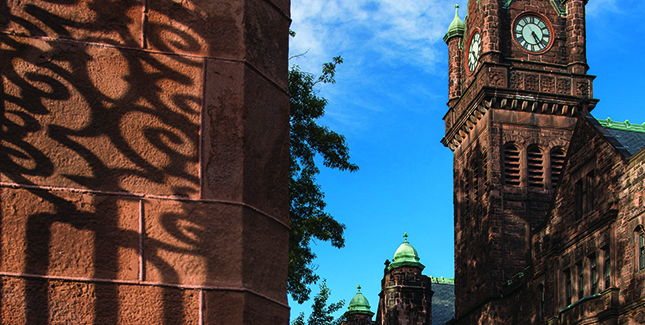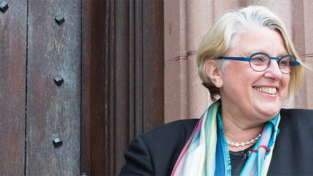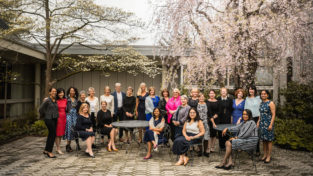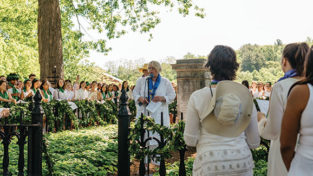President’s Pen: Summer 2015
Five years ago, when I began hosting The Academic Minute on National Public Radio in collaboration with Albany’s WAMC, our goal was to promote participatory democracy by providing access to those outside of the academy to cutting-edge research and scholarship taking place at colleges and universities around the world. This ninety-second glimpse into the lives of faculty is also an attempt to use the most vibrant vectors available to articulate the value of liberal education. At a time when public confidence in higher education is at an all-time low and when education is viewed as a private commodity instead of a public good, it is incumbent upon education leaders to make the case for why a liberal education is more relevant than ever.
The liberal education we offer at Mount Holyoke is a sensibility, rather than a collection of subjects.Lynn Pasquerella ’80
Mount Holyoke’s extraordinary faculty ensure that when our students graduate, they have the capacity to write, speak, and think with precision, coherence, and clarity; the ability to anticipate and respond to objections; and the ability to exercise cultural competence, understanding what it is like to walk in the shoes of others. As philosopher Martha Nussbaum reminds us, “upheavals of thought” create empathy—an essential component of humanity—and are building blocks toward understanding justice, creating moral imagination, and connecting thought to action—all at the heart of Mount Holyoke’s mission of using liberal learning for purposeful engagement in the world.
Moreover, as Mount Holyoke has made clear with the launch of our Lynk initiative, connecting curriculum to career, we are convinced that a liberal education is the best preparation for whatever career goals our students have in mind. Indeed, a liberal education provides the skills of adaptability and flexibility in a world in which rapidly changing technology means rapid obsolescence and where the jobs of the future have not yet been invented. Perhaps most importantly, the liberal arts and sciences enrich the experience of individuals alone and as members of a community, allowing us to flourish fully as human beings and empowering us to grapple with the complexities of human existence. One cannot cope with complexity through fragmented consciousness and discourse or flourish on an entire diet of bread and circuses.
There is inherent value that comes from reflecting on experiences in a way that arouses the very sensibilities enabling us to deal with the metaphysics of being human, conscious of living in the world. The liberal education we offer at Mount Holyoke is a sensibility, rather than a collection of subjects. A good critic of literature can bring us into a sphere of experience that combines allusions to the past with what is happening in the world right now. Like philosophers, artists, and historians, he or she is capable of speaking to the universality of experience, and it is unnecessary to measure how many people were illuminated to understand the impact of what they offer. In the end, it is this phenomenological engagement with the liberal arts, offered each and every day at Mount Holyoke, that fosters the next generation of women leaders and helps students to clarify who they are and who they want to become.
—By President Lynn Pasquerella ’80
This article appeared in the spring 2015 issue of the Alumnae Quarterly.
July 16, 2015











Leave a Reply